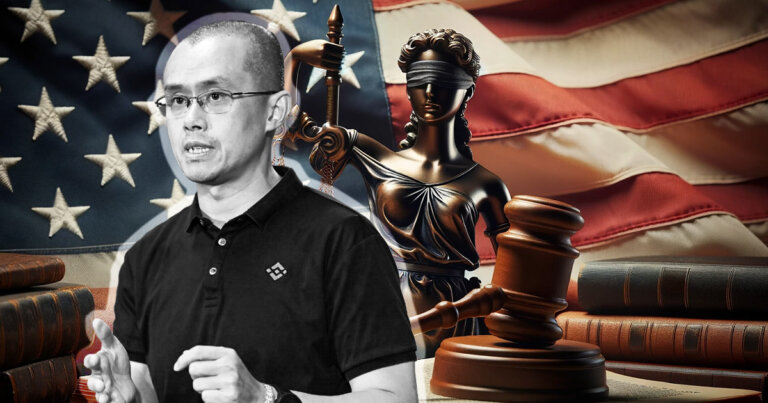In a historic ruling that could have far-reaching implications for the cryptocurrency industry, Changpeng Zhao, the founder and former CEO of Binance, the world’s largest crypto exchange, was sentenced to four months in federal prison on Tuesday. The sentencing follows Zhao’s guilty plea last year for failing to implement an adequate anti-money laundering program at Binance, a violation of the Bank Secrecy Act.
The sentencing, handed down by U.S. District Judge Richard Jones in Seattle, concluded a high-profile case that exposed alarming deficiencies in Binance’s compliance practices. In his ruling, Judge Jones condemned the “unprecedented” scale of Binance’s violations, accusing the company of “essentially turning a blind eye” to potential financing of terrorism, drug trafficking, and other illicit activities facilitated through its platform.
“You prioritized Binance’s growth and profits over compliance with United States laws and regulations,” Judge Jones reprimanded Zhao sternly. “You have to understand that despite wealth, power, or status, no person, regardless of wealth, is immune from prosecution or above the laws of the United States.”
The four-month sentence was less severe than the three-year term prosecutors had sought
The four-month sentence was less severe than the three-year term prosecutors had sought, but more stringent than the probation Zhao’s defense team requested. Prosecutors argued that Zhao’s willful disregard for establishing basic financial crime prevention protocols, such as identity verification and transaction monitoring, created a haven for money laundering activities.
“This was a plan,” stated Kevin Mosley, the federal prosecutor. “Breaking U.S. law was not incidental to his plan to make as much money as possible; violating the law was integral to that endeavor.”
Zhao, popularly known as “CZ,” expressed remorse during the hearing. “I failed here, I deeply regret my failure, and I’m sorry,” he told the court. The 46-year-old former CEO highlighted his humble beginnings, immigrating from China to pursue opportunities, and his aspirations to provide educational access through a new online learning platform.
However, Judge Jones remained unmoved by Zhao’s backstory, underscoring the grievous nature of Binance’s violations which enabled “money to flow to terrorists, cybercriminals, and child abusers through its platform,” as stated by U.S. Treasury Secretary Janet Yellen.
The sentencing represented the culmination of a sprawling investigation into Binance that began in 2020. Last year, Binance itself pleaded guilty to three felony counts and agreed to pay $4.3 billion in fines, one of the largest criminal settlements in history. Prosecutors accused the exchange of willfully failing to register with the Financial Crimes Enforcement Network (FinCEN) and deliberately bypassing compliance processes to gain market share rapidly.
Defense attorneys argued that Zhao’s offense did not warrant incarceration, citing similar cases without prison sentences. “There is not a single case in which a person convicted of this [Bank Secrecy Act] offense, when there is no other crime alleged, who’s been sentenced to prison. Not a single one,” contended William Burck, one of Zhao’s lawyers.
The ruling against Zhao and Binance comes amid heightened scrutiny of the cryptocurrency industry by U.S. regulators. Last year, the dramatic collapse of FTX, another major crypto exchange, and the subsequent arrest of its founder Sam Bankman-Fried, underscored the vulnerability of digital asset markets to fraud and illicit finance.
While Zhao’s sentencing pales in comparison to Bankman-Fried’s 25-year prison term for defrauding customers and investors, it serves as a stark warning to crypto firms operating in legal gray areas. The case demonstrates authorities’ intensifying efforts to bring accountability and oversight to the largely unregulated realm of cryptocurrencies.
As the crypto sector continues its dizzying evolution, market participants and regulators alike will closely monitor the repercussions of this landmark case. The ruling sets a precedent for stringent enforcement of anti-money laundering laws, potentially ushering in a new era of heightened compliance standards for digital asset platforms.
Context reading:
DOJ Recommends 3-Year Prison Sentence for Binance Founder Changpeng Zhao
In the aftermath of this high-stakes legal battle, the crypto community finds itself at a pivotal crossroads – embracing robust security practices and regulatory adherence, or risking further crackdowns that could impede the industry’s mainstream adoption and long-term viability.



